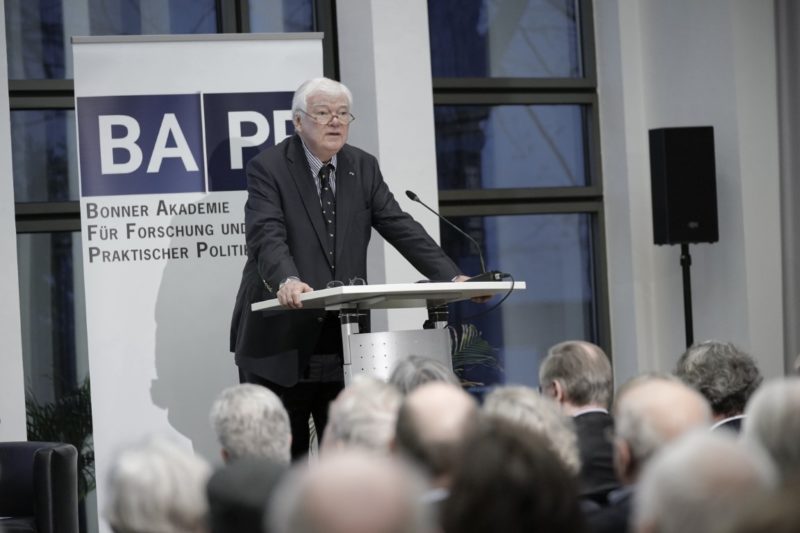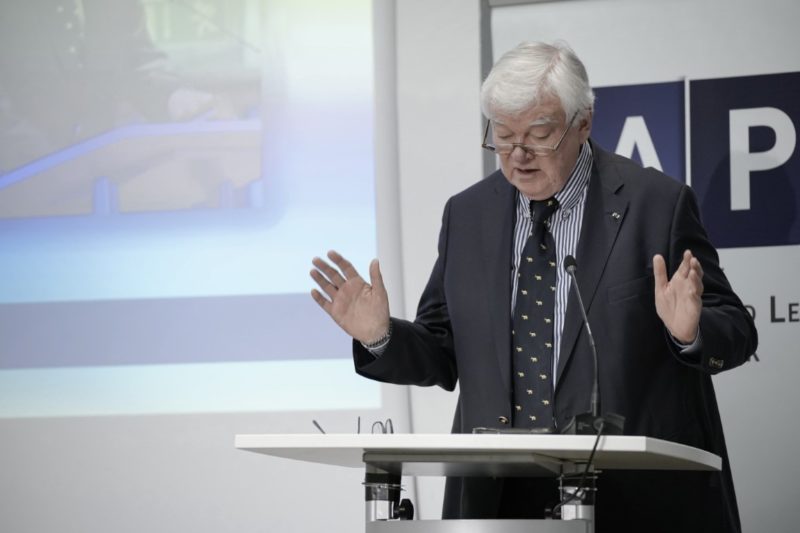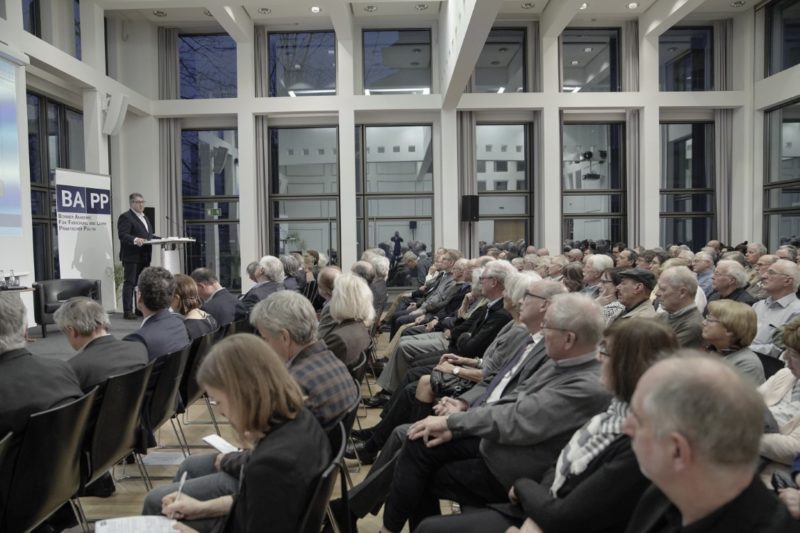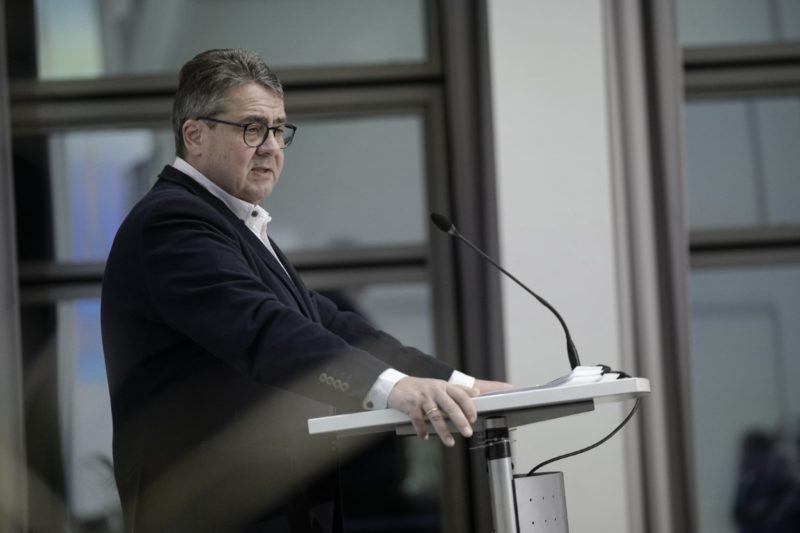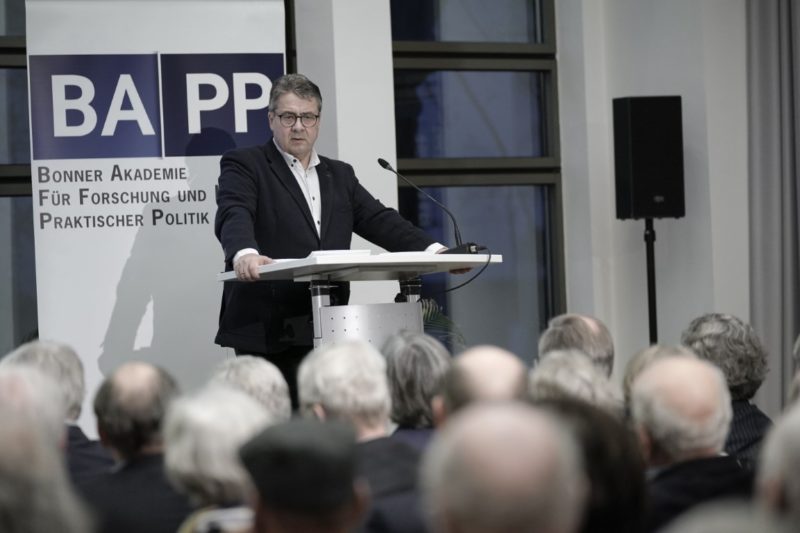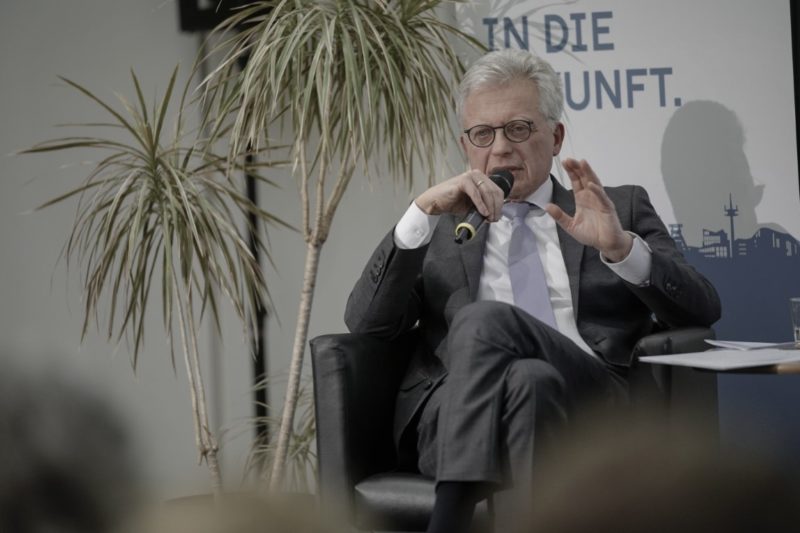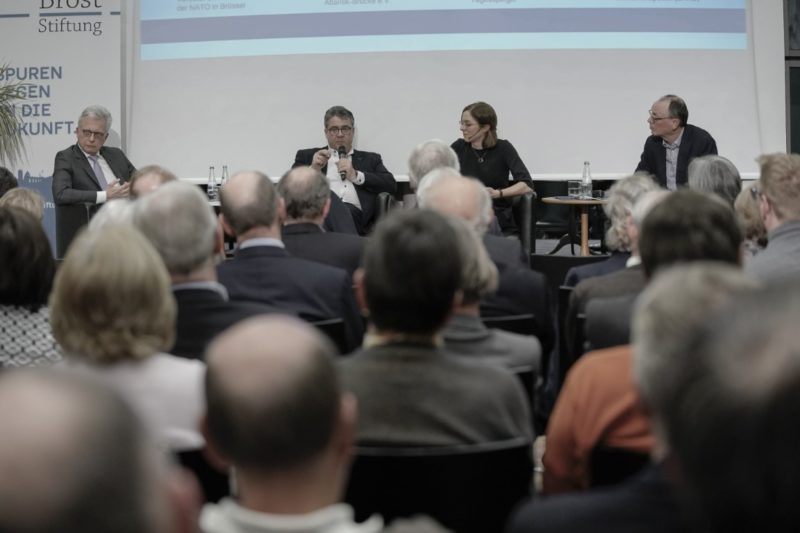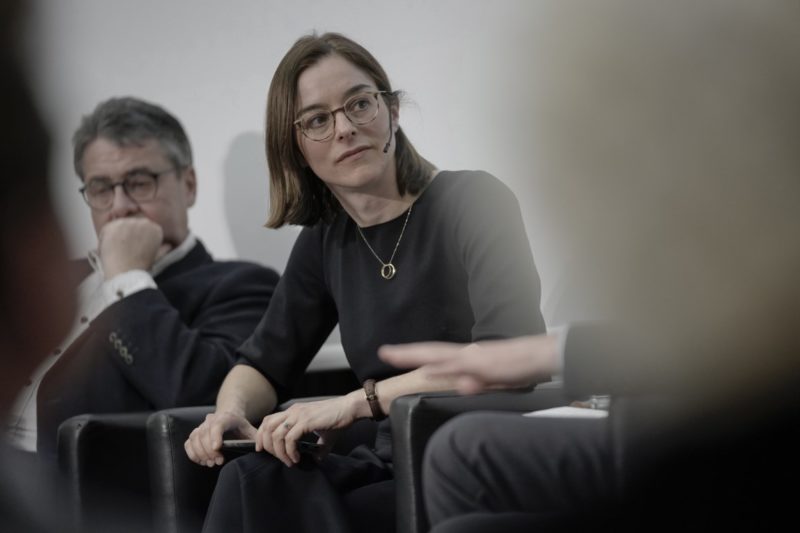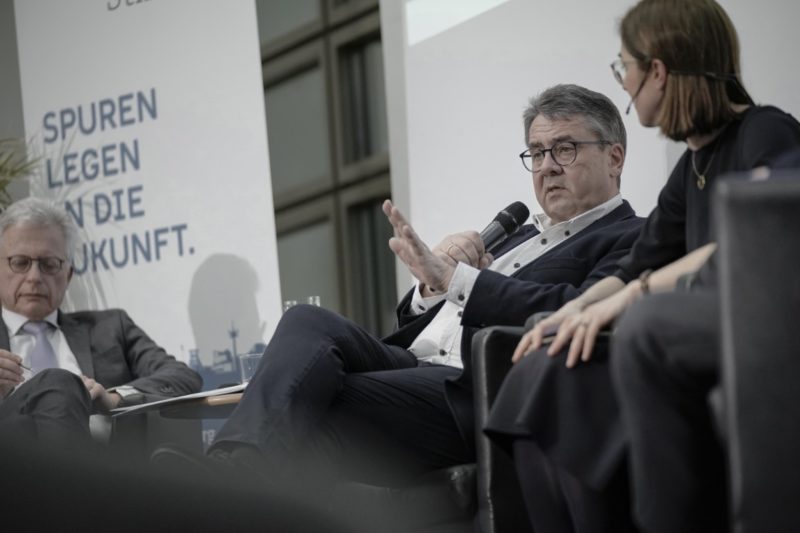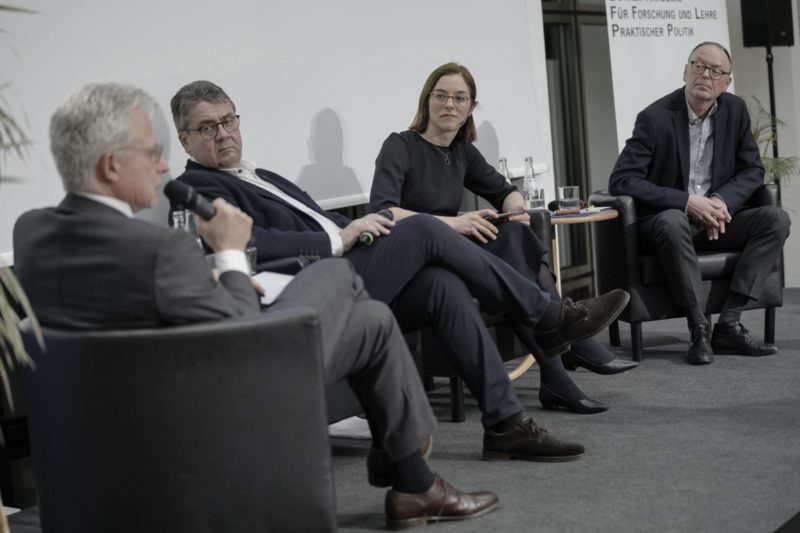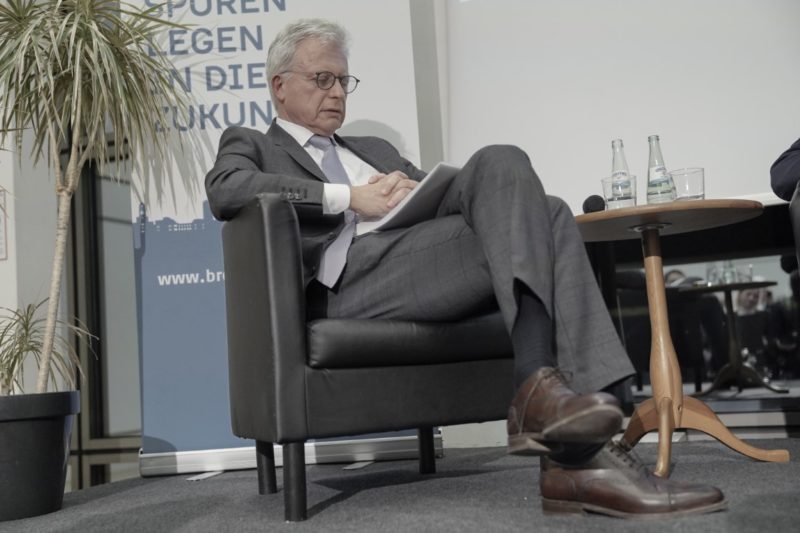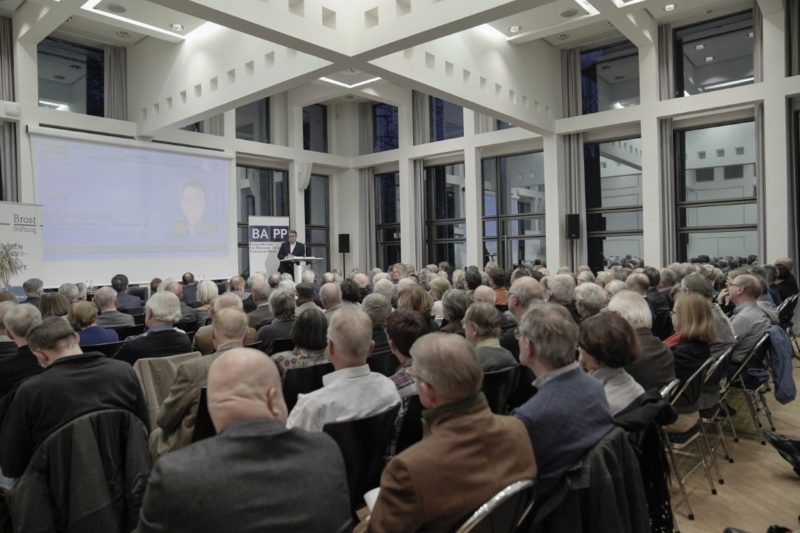On 2 March 2020, Sigmar Gabriel, former Federal Foreign Minister and Chairman of the Board of the Atlantik-Brücke e.V., Dr Hans-Dieter Lucas, Ambassador and Permanent Representative of Germany to NATO in Brussels, and Ekkehard Brose, Ambassador and President of the Federal College for Security Studies (BAKS), discussed the topic “NATO – will the alliance continue to secure peace in the future? Dr. Anna Sauerbrey, head of the “Opinion/Causa” department at the Tagesspiegel, led through the evening.
In his welcoming address, Prof. Bodo Hombach referred to the fragility of the Western alliance: If Trump – as President of the leading superpower – declares NATO obsolete as well as democracy and the rule of law are dismantled in individual member states, then one has to wonder whether the “case for the alliance” might not ultimately become a “trap for the alliance”. Referring to his own background, he reminded on his work for the Stability Pact for South Eastern Europe. With regards to peace work in the Balkans, he blamed NATO for a lack of coordination, efficiency and seriousness. Hombach, who identified security as the most elementary of all basic needs, said that one has to be prepared for peace and handed over to Sigmar Gabriel.
Gabriel started with a reference to the question mark in the event title. There are three reasons why NATO’s ability to act is called into question: First, the strategic reorientation of the United States, whose focus has shifted from Russia to China. Secondly, the vague view of the “enemy”. While the lines of demarcation were clear during the Cold War, China, for example, is now both antagonist and economic partner. And third, the doubt about the Alliance’s defence capabilities, especially those of its largest partner, the United States. This doubt is much more dangerous for the Alliance than financial, material or personnel deficiencies. For political cohesion the ability to secure peace is decisive. He highlighted the difficult relationship with Turkey, which he described as “frenemy”, as well as the isolationism of the United States, which is increasingly withdrawing from its former role as the world‘s policeman.
In the panel discussion that followed, Ambassador Ekkehard Brose also noted the USA’s lack of leadership. Against this background, his diplomatic colleague Dr. Hans-Dieter Lucas raised the question of how Europe would like to position itself within the alliance in future: “NATO is the only framework for collective defense. But we need a substantial European contribution.”
Gabriel, too, is convinced that the military coordination of the alliance is working, but that Europe’s political positioning is lacking. Brose agreed with this, adding that Europe has to take bold action. Furthermore, the EU is the more suitable actor for specific challenges compared to NATO. NATO is a military actor, but in many southern crisis regions the challenges are structural in nature. Here, however, there is a much greater need in terms of development policy and civil society.
Commenting on the difficulties in dealing with Turkey, Gabriel stressed that Turkey should not be pushed out of NATO – since NATO is the last anchor against nuclear armament. Hans-Dieter Lucas also feels that ambiguities have to be dealt with. It is important to find a balance between dialogue and criticism.
The event took place in cooperation with United Europe and the Brost Foundation on 2rd March at the Bonner Akademie für Forschung und Lehre praktischer Politik (BAPP) in Bonn.



